Can Black Millennials Access the American Dream?
A new book examines how a generation fights for its future.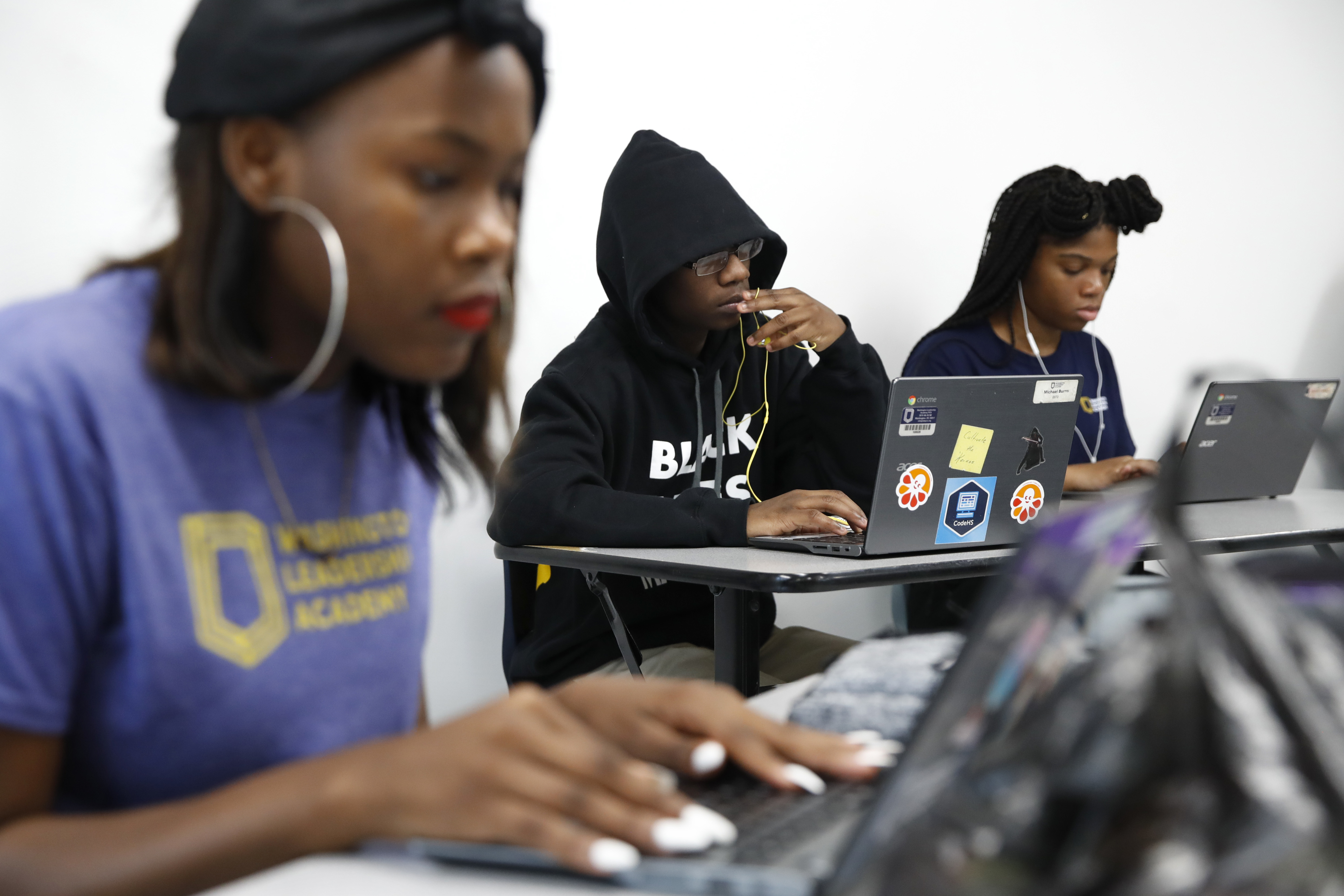 Jacquelyn Martin / AP
Jacquelyn Martin / AP
Millennials, a 2013 issue of Time magazine proclaimed, “are lazy, entitled narcissists, who still live with their parents.” Almost six years later, the media changed their tune: Millennials are not entitled, but exhausted, struggling under the weight of staggering student debt and what Michael Hobbes called at the HuffPost the “scariest financial future of any generation since the Great Depression.”
Missing from both the accusations of entitlement and the backlash is an analysis of how race affects economic and social outcomes for millennials. As journalist and Eisner Fellow at The Nation, Reniqua Allen, writes in her new book, “It Was All a Dream: A New Generation Confronts the Broken Promise to Black America,” while “43 percent of all American millennials are non-White … discussion about millennials and their ideas of ‘success’ are often deeply rooted in the experiences of privileged White men and women.”
In other words, America may have had its first black president, but Barack Obama’s election didn’t eliminate student debt, the shrinking economy, limited opportunities for upward mobility or the added burden of racism.
Against this backdrop, what does success mean for black millennials? Is the American dream available to them? To answer that question, Allen traveled across the country, conducting interviews with 75 black millennials spanning class, gender and education levels. They include students, business executives, activists, sex workers, coal miners, parents and everything in between. She combined their stories with extensive research and observations from her own life experiences. Allen spoke to Truthdig shortly after the book’s release.
Full disclosure: The interviewer attended an after-school program with Allen in 1993, when they were preteens. This interview has been condensed and edited.
Ilana Novick: How do the experiences of black millennials differ from the general media narrative around millennials?
Reniqua Allen: I think that the media, particularly initially, largely got the story of the millennial generation wrong. They definitely portrayed the millennial generation as kind of these over-educated folks living in Brooklyn.
The experience of black millennials particularly is important, because we’re dealing with some of these generational issues. We’re dealing with student debt, and wages not increasing and lower rates of unionization.
At the same time, we’re also dealing with the same stresses and burdens that black people have always faced around discrimination. Predatory lending is big for this population. There are all these other issues around being black in America that have largely been the same that we still have to face. We’re doing so, I think, with the expectation from people, particularly white people, that things are equal [for everyone].
IN: Money: earning it, keeping it and passing it to new generations, is a recurring theme for many of the people you spoke to in the book. What are some of the financial challenges facing black millennials?
RA: Every indicator shows that when we’re looking at things economically—and young black millennials don’t have things like inheritance, they don’t have the wealth to fall back on—we’re also looking at other issues, like black people don’t get called back for jobs because of their names, they don’t have the network to rely on that many of their white peers do. We’re seeing a backlash in government and a resistance to programs like affirmative action. We saw the gutting of the Voting Rights Act a few years ago. We’re doing this with less protection than ever.
IN: Millennials of all races, but especially white millennials, like to think of ourselves as less racist than our parents. How accurate is that perception?
RA: Even if you look at studies by millennials about millennials, about white millennials on race, it shows that things aren’t necessarily equal. You look at, for example, white millennials—there’s a study by The Washington Post in 2015, which asked them if blacks are less intelligent or lazier [than whites], and their answers are largely the same as generations past. There are huge numbers who actually agree with those things.
There was an MTV study that shows that even though their parents taught them that everyone should be equal—a good thing, only something like 37 percent of millennials had talked about race with their families. I think there’s a lack of understanding about how race works.
IN: And why do you think non-black millennials hold on to the idea that they’re less racist than previous generations?
RA: We don’t realize how strong white supremacy is, and that’s not just among white people. I don’t want to just put white people to blame, because people of color also do that, particularly when you’re thinking about black people. We, I think, are on the bottom, always. That’s a frustrating place to be in.
IN: I want to ask about Troy, the young man who decided to sell drugs after he exhausted his legal options for earning money. You write, “His story is different and could only belong to a millennial.” Why do you think so?
RA: I think Troy is a really good representation of someone from this generation who feels entitled to a better life, who feels that he should be doing more but is not quite able to grasp it. He has a really—and I think that this is a great trait of the millennial generation—he does feel independent. He does have a real entrepreneurial streak.
He tried selling sneakers on Facebook. Young white boys his age who had access to more cash and could buy better sneakers started taking that venture from him, so he wasn’t able to do it then. He goes through all these kinds of legitimate things he failed at. At the same time, he was also trying to do … he was a golf caddy. He said those folks that he was caddying for didn’t even acknowledge his existence. He was still invisible, I should say.
That, I think, is unique—the fact that Troy still believed in the American dream. He still believed in hard work.
It was a really fascinating moment for me, to see him still going. Seeing things like media and social media, which was supposed to be an equalizer, seeing how something like Facebook still was prone to all the discrimination that is inherent in our society. He was still prone to that, even on Facebook. Facebook didn’t even out the playing field. At the end of the day, big cash, even though it’s coming from young white millennials or even their parents, still kind of ruled.
IN: The question of whether and how millennials can own a home is a struggle for multiple people interviewed in the book, including Patrick, who dreamed of owning a home until he worked in housing advocacy, and watched his parents go through foreclosure. Can you talk about why you think the idea of owning a home became so important to Americans?
RA: As much as we try to push back on tradition, I think the idea of homeownership is quintessential to the American experience. I want to be clear that most of the people I talk to are black Americans. That doesn’t discount our American-ness at all. We are still Americans. I think a fundamental part of making it, this idea of success in America, is owning a home.
I think that black people don’t necessarily diverge in that. This idea of 40 acres and a mule has always been a prominent part of, at least, my black experience. I think it’s human nature to want to be able to place roots somewhere. As black Americans, I think, more than anyone, we have seen the importance of that, of being able to own our own spaces.
Millennials, a lot of whom grew up during the 2008 recession, saw how homeownership could be a burden to their parents. A lot of the people I spoke with—Patrick one of them—experienced foreclosure. A couple others [in the book] experienced homelessness and had to deal with that. That still doesn’t mean that we don’t want a place that feels like ours. Patrick wanted a place where he could paint the walls of his own place, where people didn’t tell him what to say.
For me, that was part of what I saw as success. I wanted to own, and particularly own in a part of town where my mom was not allowed to own, where my grandparents weren’t allowed to own, in New Jersey. I wanted to prove or show that I could own in this place where we traditionally weren’t allowed. It felt like a win for me.
IN: How do past economic policies impact black millennials’ ability to own a home today?
RA: It goes back decades and decades and decades that homeownership is what—this is a quote—“would establish us potentially as a people, that would make us American.” I think this idea is a part of American culture, and millennials feed into it. I was shocked to find that these people are still benefiting from the Homestead Act from the 1800s. That just blew my mind. This is not like a couple [of] people. This is, like, millions of people [who] are still benefiting from wealth and homes that were passed down to them, generation to generation. That’s something that young black Americans, young black millennials, don’t have the ability to benefit from.
Banks do not like to take risks on black people, and that makes a difference. It’s shown over and over again. I shared my story of homeownership. I too got predatory-lended on the basis of race, which is kind of the interesting part for me.
I want people to understand that it’s not an even playing field. People, I think, don’t necessarily see that. They don’t see how privilege works in their lives. Owning a home, or inheriting a home, which also young black people don’t benefit from, is a huge boost, a huge boost.
IN: Troy’s lack of access to education made me think about another topic that comes up in multiple stories, which is the relationship between education and student debt. Michael, for example, is heavily in debt, but is still determined to finish his degree. Is education a path to mobility, or is it just a generally awful situation, because you can’t necessarily get a job if you don’t have the degree, but even if you have the degree, it’s not a guarantee that you will get the job?
RA: I think black people, when it comes to education, are in a really hard spot. Every indicator shows that you’re penalized more if you don’t have that education, but it’s coming at a very high cost. I think the payoff is diminishing at every moment.
I have a bachelor’s, a master’s degree; I’m working on a Ph.D. at the moment. I am a person who obviously believes in the importance of education. I also believe that everybody doesn’t need to spend years and years in college. You should be able to have a quality education and graduate high school and have a good job and be able to have health care and be able to send your kids to college and not be saddled with debt.
I think there’s some real problems in our system. I think it’s really hurting black people—young black millennials—in ways it doesn’t hurt other people. Part of that is we get paid less when we do get jobs. We have a harder time finding jobs. I mentioned earlier that we don’t always have those networks to tap into, with things like affirmative action actually going away more than ever—now more than ever, I think—and unions not being able to protect us. One big thing is that unions really do actually help young black people, and black people in general, I should say.
With these protections going away, it’s increasingly hard for me to be convinced that education or a college education is going to be the path to upward mobility in 20 years. I think, where we are right now, unfortunately, it still is. This feels all very systematic. It feels like a cycle that black millennials are trapped in. If they don’t get the degree then they don’t get the job as much.
IN: How is the situation different for white millennials?
RA: Young white people with far less education still do well. It’s actually because discrimination, I think, is so inherently built into the fabric of this country that it really reproduces itself in all these different places. We really need to understand that and reconcile it.
I think people, particularly the young black millennials that I talked to, were working harder than ever. People were trying to go to school, but couldn’t totally translate that into opportunity and upward mobility. But it’s not for lack of trying.
IN: During the 2016 election, and the post-mortems after Trump won, we heard so much about the white working class, but not stories of people like Jeremy, the black coal miner from West Virginia, whose story appears in the book. Where was the black working class? Why do you think their stories were left out?
RA: I do think Jeremy’s story is so important, and the people of West Virginia and Appalachia. Honestly, I didn’t know that there are tons of black people in Appalachia. I was surprised.
They had a distinct voice. This was kind of as Donald Trump was running for president. I think Jeremy was considering [voting for] Donald Trump.
I think people need to really understand, and people miss that just because they’re black, it doesn’t mean that our experiences are a monolith. Jeremy also had the experience of being Appalachian. I think that, again, this is a problem of media being so centered in New York City. I had to rent a car and drive to McDowell County, which is one of the—I think it’s still the poorest county in West Virginia. It’s not so easily accessible. I think that media does like to portray it as a decrepit and dying place, when the people there I saw were wonderful and hopeful. They had been largely left behind.
I think that the stories of—particularly of people of color—in Appalachia easily get overlooked, because we have this idea of what “Appalachians” are supposed to look like. That doesn’t often fit into the narrative, even though people of color have been in the mountains, they’ve been in the coal mines, for decades, and have their own unique experiences as well. I think there just needs to be more nuance in those conversations.
IN: The book is also about your search for a place that felt like home for you. It seems like at the beginning of the book, you were exploring the South, as opposed to New York or the West Coast or the Midwest?
RA: Yeah. I think basically what America has shown me in particular is that there is no promised land anywhere in America.
I still find a lot of pain in the South. I just do. It’s a hard place for me to truly understand. I’m trying to be better about it because I think for so many people it is home. It is certainly the place where my ancestors came from and grew up and is beloved. I think that is something tremendously important and special.
I think there is still that idea of home that is comforting to many young blacks, particularly young black millennials. They’re moving to the South, not just because the city is Chicago and New York. It never turns out quite to be the promised land.
They’re moving for that economic reason, but there’s also like a cultural—and there may be even a spiritual—thing happening. It’s actually pulling people to the South. I’m sort of amazed.
IN: I’m curious why you’re amazed.
RA: Why am I amazed about it? The South is still very largely mysterious and painful to me. I’m starting to understand why people find comfort in it, but I hate walking around on plantations. I hate seeing that. I know that the North wasn’t any better. I know that there’s a slave burial ground right here in New York City, a couple of blocks from where I am now.
The way the South still hangs on to the Confederacy and its racial heritage, I think it’s a little different. Frankly, it may be a little more honest than New York, where I think things are really covered in elitism and properness. That’s frustrating in its own way. The South may be more real about it. It’s just [that] I’m uncomfortable because I’m used to dealing with my closeted liberal ways of dealing with race, which aren’t good either in New York.
IN: What do you hope readers take away from the stories in “It Was All a Dream”?
RA: I want them to understand that young black people have a unique position in America. I want them to understand our stories. I think a lot of people don’t understand things like why Black Lives Matter was relevant.
I think that things can very easily look like there’s an even playing field. We had a black president, so progress looks possible to people. But I want people to understand how hard that progress is actually to achieve if you’re young and you’re black in America. It’s something that I think we as a people are committed to. The burden of our lives impacts us every day, and having to fight our visibility and our humanity, it weighs on us in ways that it doesn’t [for] other people.
I think that we are hopeful and we are dedicated to surviving. It’s not just a sad story of victims, of people trying to find their way in a country that has basically shit on them at every juncture of their lives and their parents’ lives and has made clear that we don’t matter. But we are pushing back and saying that … we are important and that we are here and we are not going anywhere.
Your support matters…Independent journalism is under threat and overshadowed by heavily funded mainstream media.
You can help level the playing field. Become a member.
Your tax-deductible contribution keeps us digging beneath the headlines to give you thought-provoking, investigative reporting and analysis that unearths what's really happening- without compromise.
Give today to support our courageous, independent journalists.
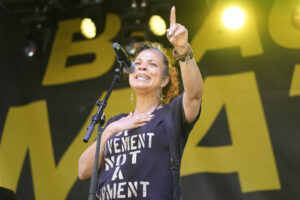
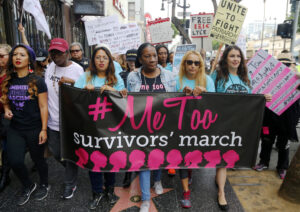

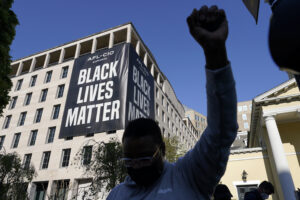
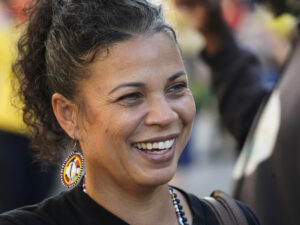
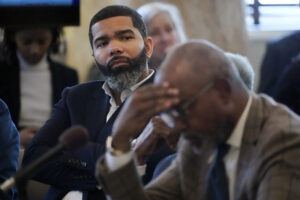
You need to be a supporter to comment.
There are currently no responses to this article.
Be the first to respond.